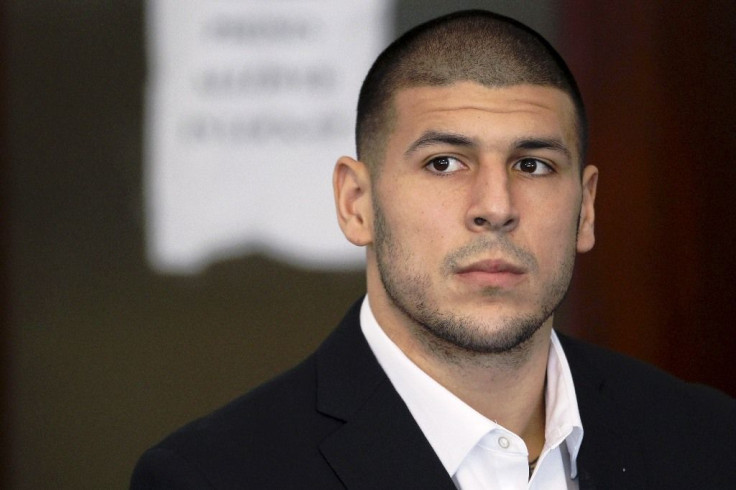Could Aaron Hernandez's Fiancee And Daughter Get Money From Patriots Pension?

Aaron Hernandez’s murder conviction for the 2013 murder of Odin Lloyd was dismissed by a judge Tuesday. A Massachusetts legal rule, known as “abatement,” was invoked. Jose Baez, Hernandez’s lawyer, claims his legal team is now in conversations with the National Football League to find out how his the abatement will affect his contract with the New England Patriots.
As International Business Times previously reported, Hernandez's outstanding contract with the team could pay out millions. The Patriots could, potentially, shell out a $3.5 million bonus that Hernandez lost after being arrested for the Lloyd murder. It’s also possible that the team could owe him an additional $2.5 million in base salary that he lost after his arrest.
Read: Aaron Hernandez's Lawyer Reportedly Doesn't Think Death Was Suicide
When asked whether the abatement would have an affect on Hernandez’s existing contract with the NFL, Baez told TMZ it “remains to be seen.” “We’re in discussions with his agents to see where he stands. They're better equipped as it relates to the Players Association and things like that. I’m not sure it makes a difference. My understanding is that if he had a pension, this would not have disqualified him from that,” he said.
The Massachusetts “abatement” doctrine was established on the idea that allowing a conviction to stand before the defendant was able to fully appeal it is discriminatory. “[Judge Susan Garsh] said it is unclear why Hernandez killed himself and that a recently released correction department report provides no clear evidence of his motive,” the Courant reported Thursday. “The Commonwealth had pointed to part of a correction department report that said inmates had heard Hernandez talk about the abatement doctrine.”
The former star athlete was found with the bible passage 3:16 written in red ink on his forehead and multiple suicide notes, including one in which he told his fiancée, “You’re rich.” However, Baez also said that investigations and conversations with people in Hernandez’s orbit have given him no reason to believe that the athlete killed himself so that his family would receive his pension.
Aaron Hernandez committed suicide in his prison cell April 19 at the Souza-Baranowski Correctional Center in Shirley, Massachusetts. He killed himself just five days after being acquitted of murdering Daniel de Abreu and Safiro Furtado outside a Boston nightclub in July 2012. According to authorities, Hernandez used a bed sheet to hang himself from the window of his cell in a general population housing unit.
Baez told TMZ that the family’s focus now is “to change the legacy of Aaron Hernandez,” adding, “That’s something everyone who truly knew him is concerned about.”
© Copyright IBTimes 2025. All rights reserved.





















